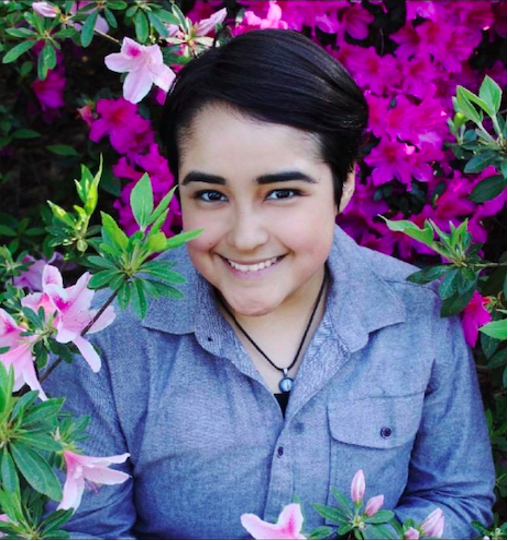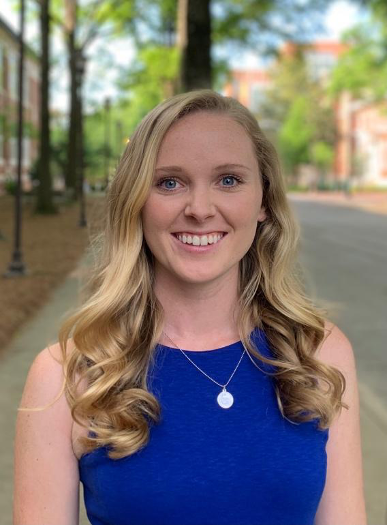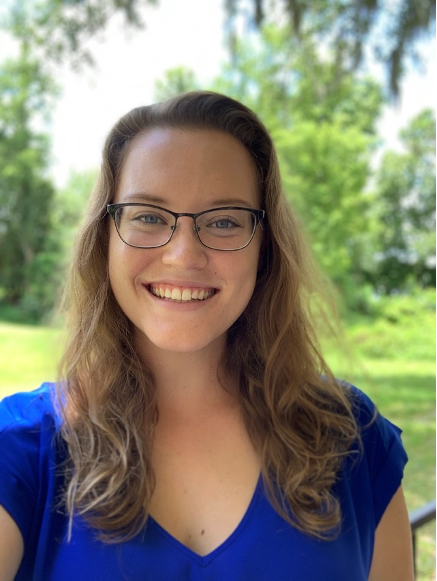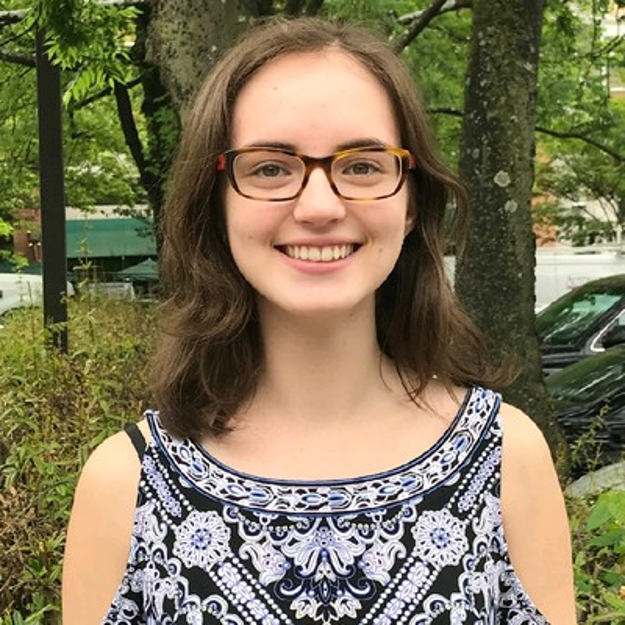 Skyler Tordoya Henckell
Skyler Tordoya Henckell
Class of 2020
- What are you doing now (career and/or educational wise)?
- I am about to start working as an IRB Analyst Assistant at Emory University.
- How did your degree in Psychology help you in acquiring the position (or getting into the program) that you are currently in?
- I was able to show that I have experience working with the IRB because of my research background and my experience with conducting a senior thesis.
- What is your favorite memory of your time with the School of Psychology?
- Bowling with the faculty and other Psychology students at Tech Rec is definitely one of my favorite memories. Another one is going to Final Stretch Donuts every semester as a study break.
- What advice would you give current and future GT Psychology Majors?
- Psychology at GT is so different from Psychology at other schools, so take advantage of it! Get involved in research and form connections with the faculty. Get to know the other Psych majors (by going to Psych Association meetings). And definitely choose the senior thesis option if you’re interested in pursuing research or grad school; it’s an amazing opportunity!
Meghan Dietrich
Class of 2020
- What are you doing now (career and/or educational wise)?
- Teaching 4th Grade as a Teach For America Corps Member in Oklahoma City as part of a collective push to provide equitable access to quality education for students across the country
Alyssa Bardin
Class of 2020
- What are you doing now (career and/or educational wise)?
- I am currently applying to Master’s Industrial/Organizational programs in which I would start in Fall 2021. In the meantime, I am continuing to work in the PARK Lab and Child Study Lab at Georgia Tech.
- What is your favorite memory of your time with the School of Psychology?
- One of my favorite memories is the Tech Rec student-faculty event that I attended in my 2nd year at GT. It was a great way to spend time with my PSYC friends and make new ones as well as interact with some of the faculty.
- What advice would you give current and future GT Psychology Majors?
- Get to know the faculty! Beyond helping you succeed in the course you’re taking, your professors are a great resource to provide you with advice on various topics including graduate school, work/research opportunities, and more. Plus, it is helpful to hear from them about the experiences they went through and their perspective on things that you may have questions on. Networking, in general, is super important during your time at GT, so do this with the faculty, PSYC or GT alumni, or professionals so that you can learn more about a potential career that you’d want to pursue, an industry you’re interested in, or other topics.
 Molly Song
Molly Song
Class of 2019
- What are you doing now (career and/or educational wise)?
- I’m currently in my second semester of the entry-level clinical doctorate of occupational therapy program in Texas Woman’s University-Dallas. I’ve also been working full-time as a behavior therapist in ABA therapy for the past year, but I’m working part-time now because of school.
- How did your degree in Psychology help you in acquiring the position (or getting into the program) that you are currently in?
- I developed an interest in autism, specifically with the pediatric population. This led me to pursue an internship with the Marcus Autism Center’s Feeding Program, which further helped me to become a behavior therapist. For my graduate school personal statement, I wrote about my interest in kids, as well as my experience as a research assistant in the Sonification Lab, which I’d like to believe gave me a huge advantage in the graduate admissions process.
- How do the knowledge/skills learned in your undergraduate program assist you in your current position or program?
- Tech’s rigorous curriculum showed me how to study, and my senior thesis experience showed me the ins and outs of the research process. Both gave me huge advantages in my doctorate program. I’ll eventually have to do a capstone at the end of my program, and I have no doubt that Tech prepared me well.
- What advice would you give current and future GT Psychology Majors?
- Psychology is such a broad field, so it’s okay if you don’t know what you want to do yet! Pick classes you’re interested in, pursue research opportunities at various labs, find internships, etc. Whatever path you ultimately continue on, your experience at Tech will help you along the way.
 Caroline Dalluge
Caroline Dalluge
Class of 2019
- What are you doing now (career and/or educational wise)?
- I just started my first year in the program of occupational therapy at Washington University School of Medicine in St. Louis! I am working towards a 3-year entry-level clinical doctorate to become an occupational therapist.
- How did your degree in Psychology help you in acquiring the position (or getting into the program) that you are currently in?
- Psychology gave me a great background in theory, human development, and cognition that has already proven key to my success in OT school! The extensive research experiences I had in the Child Study Lab gave me an early introduction to some of the clinical skills I’m using now.
- How do the knowledge/skills learned in your undergraduate program assist you in your current position or program?
- Psychology at Georgia Tech really helped me develop a scientific mindset and think critically in order to identify gaps in knowledge. The curriculum gave me ample opportunity to practice researching ideas, formulating my own hypotheses, and even testing them! After talking with my peers at WashU, I now realize how rare it is to have an undergraduate experience where you get to be so involved in the research process.
- What is your favorite memory of your time with the School of Psychology?
- I always loved the donut events at the end of every semester! It was always fun to see classmates and professors from previous classes.
- What advice would you give current and future GT Psychology Majors?
- Get involved in research ASAP! Labs are a great way to figure out what niche of psychology you’re really interested in. Perhaps more importantly, labs are a great way to meet people in other years or science majors. When you find the right lab for you, you can really get a sense of community with the professors and students you work with. I loved my lab so much I stuck around an extra year after graduating!
 Natalie Black
Natalie Black
Class of 2019
- What are you doing now (career and/or educational wise)?
- Psychological Specialist, Sr.
- I work at Emory Healthcare and Emory University in Alzheimer’s Disease research and clinical care. I started with lab processing and cognitive testing. I currently lead a team of cognitive assessors, and still help out in the lab with Cerebral Spinal Fluid processing every once in a while.
- I also work part-time as an EEG consultant for Dr. Annabelle Singer in GT BME research.
- How did your degree in Psychology help you in acquiring the position (or getting into the program) that you are currently in?
- I worked with Dr. Audrey Duarte in her Memory and Aging lab. This exposed me to several things: neuropsychological assessments, EEG, data processing, and working with older adults. Once I had EEG experience, Dr. Annabelle Singer from BME and Dr. Grace Leslie from Music Technology reached out for EEG consultant. Unbeknownst to me, Dr. Singer had ties with Alzheimer’s Disease research. When I was looking for a job, Dr. Singer graciously sent my resume to Emory, and the rest is history!
- How do the knowledge/skills learned in your undergraduate program assist you in your current position or program?
- Of course the research experience helped me with getting to my current position, but the curriculum that GT Psych majors go through definitely sets us apart in our field. When comparing my academic history to fellow Psych majors, there’s no competition! Through our heavy STEM-focused curriculum, we are taught the problem-solving and time management skills that really define my work ethic and, honestly, my value in my current field.
- What is your favorite memory of your time with the School of Psychology?
- Easy, late night studies in the catacombs of Coon, mostly for Spieler’s statistics course.
- What advice would you give current and future GT Psychology Majors?
- Take the programs seriously! Knowing how to process data is MAJOR. I had no idea.
- Also, if Tech doesn’t necessarily have the emphasis you’re looking for (ex. I ended up wanting to be clinical), don’t panic! The things you learn at Tech will help you stand out no matter what field you are thinking of entering. People say it all the time, but turns out, it’s very true! Tech has its reputation for a reason. You’re attending a prestigious school with a wonderful Psychology program that I wouldn’t have traded for anything.
 Briana Sobel
Briana Sobel
Class of 2018
- What are you doing now (career and/or educational wise)?
- Pursuing a PhD in Human Factors and Cognitive Psychology at the University of Central Florida. My research interests include studying the cognitive mechanisms of technological anthropomorphism, or why people perceive and treat technology as if it is humanlike.
- How did your degree in Psychology help you in acquiring the position (or getting into the program) that you are currently in?
- The Psych major was helpful for getting into a Psych graduate program. Specifically, the education from Georgia Tech, the experience in the Engineering Psych labs on campus, and my Industrial Design minor helped me get into the applied field of Human Factors psychology.
- How do the knowledge/skills learned in your undergraduate program assist you in your current position or program?
- I definitely received a strong foundation in Psychology that has helped me in my graduate courses. Some of the other requirements for the major, like taking a CS course and allowing freedom for a minor, helped shape my Psychology interests to focus on applied, experimental psychology. Most of all, the availability of lab experience was essential. I was able to get several years of research experience as an undergrad, which is not common for other majors at GT or for Psych majors at other universities. The hands-on experience helping to design and run studies was absolutely essential for my success as a graduate student.
- What is your favorite memory of your time with the School of Psychology?
- I loved the small class sizes. You got to know your fellow majors very well because you all ended up in the same classes.
- What advice would you give current and future GT Psychology Majors?
- Take advantage of research opportunities. Look up the labs on campus and reach out to the faculty members. Get started on research as soon as possible for your schedule (I started second semester of Freshman year).
- Take electives outside your major and try to get a minor. This is important to get experience in interdisciplinary settings as well as get more of the specific, applied skills that aren’t always taught in your general psych classes.
- Focus on narrowing down your interests. Psych is a big field, and it is far more fruitful to focus on becoming an expert in one part of it than just having general knowledge. If you are interested in HCI, look into a CS or ID minor. For I/O, consider a business certificate. For clinical, a minor in biochemistry or even do the pre-health track.
- Get to know the grad students. This is where the most honest and up to date information about post-undergrad life is going to come from.
- Involve yourself across campus. Not only does it help widen your skills to include organization, leadership, and time management, but it helps spread the word about the psych major to others on campus.

Katherine Reuben, Class of 2018
- What are you doing now (career and/or educational wise)?
- I’m studying epidemiology at Georgia State University’s School of Public Health. I also work as a graduate research assistant for Dr. Shannon Self-Brown; we research child maltreatment and commercial sexual exploitation with a focus on prevention, intervention, and posttraumatic stress treatment efficacy.
- How did your degree in Psychology help you in acquiring the position (or getting into the program) that you are currently in? How do the knowledge/skills learned in your undergraduate program assist you in your current position or program?
- The undergraduate Psychology program at Georgia Tech has a unique focus on research and statistics that gave me an advantage in applying for my current program and GRA position and assists me in these positions. Outside of classes, I gained a lot of experience working in the Center for Advanced Brain Imaging under Dr. Schumacher and doing my senior thesis under Dr. Stanzione. In particular, I believe that presenting a poster on my senior thesis at a major trauma conference made my CV stand out, and the work done for that study really prepared me for my current work.
- What is your favorite memory of your time with the School of Psychology?
- I formed several close friendships in Dr. Schumacher’s lab, and I have many good memories of meeting with these friends outside of lab. Additionally, taking on so many responsibilities related to designing, collecting and analyzing data for, and presenting a study related to my interest in trauma research was an incredible experience.
- What advice would you give current and future GT Psychology Majors?
- If you’re interested in research, get involved with a professor’s lab early. Additionally, choose the senior thesis option and take it seriously! It’s a great opportunity to gain skills and experience, research a subject that you’re passionate about, and get support from a faculty adviser. In my experience, the professors at Tech are really open to working with students even if the student’s research interest isn’t in an area that they’re familiar with. You just need the confidence to ask and the determination to seek out the right resources.




